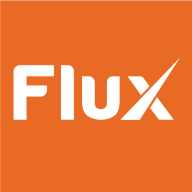

Flux and UiPath Orchestrator are competing products in the process automation market. UiPath Orchestrator appears to have the upper hand due to its superior feature offerings and robust automation capabilities which justify its higher cost.
Features: Flux is recognized for its scalability, flexibility, and adaptability across different environments. It provides strong integration options and efficient process orchestration. UiPath Orchestrator stands out with robust automation capabilities, seamless integration across platforms, and extensive functionality, making it reliable for complex automation tasks.
Ease of Deployment and Customer Service: UiPath Orchestrator offers a straightforward deployment model, extensive documentation, and responsive customer support that facilitates smoother implementation. Flux provides customizable deployment options, though it may require more technical expertise, making UiPath Orchestrator's approach more user-friendly with better support.
Pricing and ROI: Flux is noted for its competitive setup costs and considerable returns, making it attractive for budget-conscious buyers. UiPath Orchestrator, despite its higher initial cost, delivers substantial ROI due to its comprehensive feature set that maximizes productivity, justifying its expense through enhanced capability and returns.

Flux is an essential tool for data migration, system integration, and real-time data processing, offering scalable solutions that support large datasets and streamline workflows.
Users leverage Flux for managing complex environments with large datasets, automating workflows, and enhancing data consistency across platforms. Its capabilities in real-time data processing, synchronization between different systems, and operational efficiency improvement are frequently highlighted. Users commonly find it flexible and reliable, appreciating its performance in managing scheduled tasks and simplifying data orchestration.
What are Flux's key features?Flux is used across industries like finance, healthcare, and logistics for streamlined operations and optimized data management. In finance, it supports data integrity and compliance. Healthcare organizations use it for real-time patient data processing and integration with various systems. Logistics benefit from improved tracking and coordination.
UiPath Orchestrator automates website processes, manages supply chains, handles log-ins, and processes invoices efficiently. It's a comprehensive tool for generating reports, managing RPA workflows, scheduling robots, and ensuring task accuracy, making it indispensable for organizations aiming to optimize automation.
UiPath Orchestrator stands out for its user-friendly interface, centralized data collection, and robust security measures. Its intuitive design, combined with a comprehensive view of bot activity, makes it highly appreciated among users. With asset encryption, AI-integrated functionalities, and role-based access control, organizations find it reduces the need for extensive technical knowledge, thereby enhancing automation efficiency. It also excels in asset and queue management, logging capabilities, and scheduling functions, contributing significantly to streamlined operational processes.
UiPath Orchestrator sees wide application across industries such as manufacturing, finance, and healthcare. In manufacturing, it streamlines supply chain processes and automates inventory management. Finance companies use it for processing invoices and managing compliance, while the healthcare sector benefits from automating patient data handling and optimizing appointment scheduling. Each industry leverages the platform\'s extensive capabilities to enhance operational efficiency and accuracy.
We monitor all Workload Automation reviews to prevent fraudulent reviews and keep review quality high. We do not post reviews by company employees or direct competitors. We validate each review for authenticity via cross-reference with LinkedIn, and personal follow-up with the reviewer when necessary.